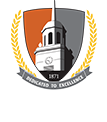
Stephani M. Foraker, Ph.D.
Associate Professor Buckham Hall A246Office: (716) 878-6027
Email: forakesm@buffalostate.edu
Dr. Stephani Foraker is a cognitive psychologist, specializing in memory and psycholinguistics. She is interested in how we communicate with each other, asking how our voice, our body, and different aspects of language affect how easily we can remember something. Stephani received a B.A. in psychology from the University of Akron, OH, and earned her Ph.D. at New York University in 2004. Prior to joining Buffalo State in 2008, she was a post-doctoral researcher at The University of Chicago.
Student Mentoring
I have an active lab group of undergraduate students each year, which is a great way to get some research experience as a volunteer, and if you are interested further, as a transition into an independent research project for credit, or summer research fellowship. Please drop by my office or email me if you are interested or have questions. I am also the Faculty Advisor for Psi Chi, the International Honor Society in Psychology.
Caley Wekenmann completed her BA in Psychology at Buffalo State in 2013, followed by a BS in Nursing at Niagara University in 2015. She is currently in the Doctor of Nursing Practice in Psychiatric Mental Health program at the University at Buffalo. While at Buffalo State, Caley was the President of Psychology Club, and helped lead a study looking at change blindness while watching movies. She also did an honors thesis with me, examining speech perception of tongue twisters, which was presented at a national conference.
- Foraker, S., *Kalinowski, L., & *Wekenmann, C. (2016, November). Visual-spatial working memory resources constrain audio-visual sentence comprehension. Talk presented at the 57th Annual Meeting of the Psychonomic Society, Boston, MA.
Carla Kuhl completed her Masters in Social Work at the University at Buffalo, 2015. Carla started as a volunteer research assistant in my lab, and was involved in a Psychology Club research study. She then completed her own independent research study, presenting it at a national conference. Her experiment is part of a submitted manuscript.
- *Kuhl, C., & Foraker, S. (2012, May). Are we smarter with our hands? Relations between gesturing and fluid intelligence. Poster presented at the 24th Annual Convention of the Association for Psychological Science, Chicago, IL.
Mary Rivers completed an MA in child development at Columbia Teachers College, 2012, and an MSW at Columbia University, 2013. She is currently a Mental Health Clinician with the Institute for Family Health in the Bronx. Mary was a McNair scholar, and her research experiment was presented at a regional and an international conference.
- *Rivers, M. V., & Foraker, S. (2010, March). Do students reflect their level of understanding through non-verbal behaviors? Poster presented at the Annual Meeting of the Eastern Psychological Association, New York, NY.
Please visit Dr. Foraker’s web page for more information on getting involved in research projects, doing an independent study or honors thesis, and information on current classes.
Selected Publications
Brocher, A., Koenig, J.-P., Mauner, G., & Foraker, S. (2018). About sharing and commitment: the retrieval of biased and balanced irregular polysemes. Language, Cognition, and Neuroscience, 33(4), 443-466. doi:10.1080/23273798.2017.1381748
Brocher, A., Foraker, S., & Koenig, J.-P. (2016). Processing of irregular polyemes in sentence reading. Journal of Experimental Psychology: Learning, Memory, and Cognition, 42(11), 1798-1813. doi: 10.1037/xlm0000271
Foraker, S., & Murphy, G. L. (2012). Polysemy in sentence comprehension: Effects of meaning dominance. Journal of Memory and Language, 67, 407-425. doi: 10.1016/j.jml.2012.07.010
Foraker, S., & McElree, B. (2011). Comprehension of linguistic dependencies: Speed-accuracy tradeoff evidence for direct access retrieval from memory. Language and Linguistics Compass, 5, 764-783. doi: 10.1111/j.1749-818X.2011.00313.x
Foraker, S. (2011). Gesture and discourse: How we use our hands to introduce and refer back. In G. Stam, & M. Ishino (Eds.), Integrating Gestures: The Interdisciplinary Nature of Gesture (pp. 279-292). Amsterdam, The Netherlands: John Benjamins.
Foraker, S., Regier, T., Khetarpal, N., Perfors, A., & Tenenbaum, J. (2009). Indirect evidence and the poverty of the stimulus: The case of anaphoric one. Cognitive Science, 33, 287-300.
Foraker, S., & McElree, B. (2007). The role of prominence in pronoun resolution: Active versus passive representations. Journal of Memory and Language, 56, 357-383.
Representative Presentations
* indicates undergraduate student author
*Braun, C., *Braun, M., *Holenstein, S., *Mongold, A., *Pershyn, C., & Foraker, S. (2017, March). Embodiment of love and lust. Poster presented at the Annual Meeting of the Eastern Psychological Association, Boston, MA.
Foraker, S., *Kalinowski, L., & *Wekenmann, C. (2016, November). Visual-spatial working memory resources constrain audio-visual sentence comprehension. Talk presented at the 57th Annual Meeting of the Psychonomic Society, Boston, MA.
Foraker, S. (2016, July). Visual-spatial working memory resources modulate multi-modal comprehension. Talk presented at the 7th Conference of the International Society for Gesture Studies, Paris, France.
*Zak, S., *Crimmen, C., *Franz, T., *Kalinowski, L., *Brunetto, M., *Holenstein, S., & Foraker, S. (2016, March). Warm memories: the impact of color variation on recognition of distractor images. Poster presented at the Annual Meeting of the Eastern Psychological Association, New York, NY.
*Bellman, D., & Foraker, S. (2015, March). Lending a helping hand: Individual differences modulate how gesture facilitates working memory. Poster presented at the Annual Meeting of the Eastern Psychological Association, Philadelphia, PA.
Foraker, S., & *Kuhl, C. (2014, July). Intentional gesturing at encoding facilitates retrieval, but not as much as mental imagery: Implications for representation of gestured information. Poster presented at the 6th conference of the International Society for Gesture Studies, San Diego, CA.
Foraker, S. (2014, March). Gestures modulate access to referent representations. Poster presented at the CUNY Human Sentence Processing conference, Columbus, OH.
Foraker, S., & *Wight, B. (2013, March). Going the distance: Pronoun resolution relies on direct-access retrieval from memory. Talk presented at the CUNY Human Sentence Processing conference, Columbia, SC.
Foraker, S., & *Delo, M. (2013, March). Listen to the hand: Gestures shape the comprehension of ambiguous pronouns. Poster presented at the CUNY Human Sentence Processing conference, Columbia, SC.
Brocher, A., Koenig, J.-P., Foraker, S., & Mauner, G. (2012, October). The retrieval and mental representation of biased and balanced irregular polysemes: Evidence from priming and eye-fixations. Talk presented at the 8th International Conference on The Mental Lexicon, Montreal, PQ, Canada.
Foraker, S. & *Ostrov (2011, March). When words are not enough: Does gesturing facilitate learning more than imagery? Talk presented at the Eastern Psychological Association conference, Cambridge, MA.
Foraker, S., & *Rivers, M. V. (2010, July). Students reflect level of understanding through non-verbal backchanneling. Talk presented at the 4th Annual Conference of the International Society for Gesture Studies, Frankfurt (Oder), Germany.
Courses Usually Taught
- Cognitive Psychology (PSY 340)
- The Psychological Power of Language (PSY 330)
- Psycholinguistics (PSY 430)
- Research Methods in Psychology (PSY 450w)
- Seminar in Psychology - Long-term Memory (PSY 472W)
Awards
Buffalo State College President's Award for Excellence as an Undergraduate Research Mentor (2016)
Research Interests
My research focuses on two main issues. Below are some questions to give you an idea of how I study them.
Relationship between cognition and language
- When and how do working memory and attention affect our understanding of words that need to be linked, but are far apart from each other?
- When you’re trying to figure out what a pronoun means, like "she", what kinds of linguistic information lead to retrieval interference?
- Are word meanings stored and retrieved from memory, or are they constructed "on the fly"?
"Embodied" cognition and communication
- How do our hand/arm gestures reflect what we are thinking, and how do they contribute to understanding?
- How does emphasizing something with your voice affect what your conversation partner will understand and remember?
- Are our gestures designed for our conversation partner, or for our own thinking?
Funding
- Major Research Instrumentation grant, National Science Foundation. Principal Investigator (BCS-1039967 MRI: Acquisition of Eye-tracker for Research and Education in Cognitive and Developmental Psychology) 2010.
- Buffalo State Research and Creativity Council Incentive Award (2013).

